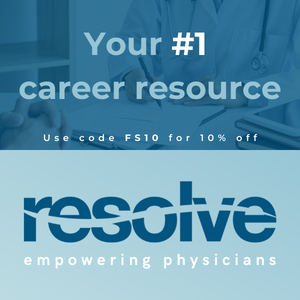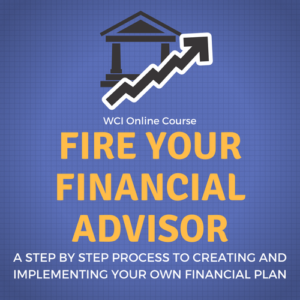I recently received a large sum of unexpected cash. An investment I had made a few years ago suddenly cashed out. When this situation comes up on social media it sparks a debate as to what to do with the money. Usually only two options are discussed: Invest the money (stocks or real estate) or pay off debt.
As I thought about what to do with my windfall, there was only one clear answer that lit up like a neon sign; pay off a mortgage. Those discussing this issue often only compare the interest rate of the potential options, which sounds something like this: You would have to be bad at math to pay off a low interest loan when you could invest the money for a higher return.
Unfortunately, this tunnel vision is costing people a lot of money. It is usually those who are only thinking about the difference in interest as a return on investment or some other parameter they feel is of the upmost importance. They neglect the current and actual effects of the decision. When I looked at the actual effect on my life, paying off the debt won hands down and here is why.
The loan I was looking to pay off was an owner carry mortgage I negotiated back in 2006 when I purchased a small apartment complex with no money down and owner financing. The terms of the loan included an option to pay interest only for as long as I wanted and the loan had to be paid in full in 30 years, which would be in 2036.
Because it was owner financed I did not have to pay loan origination fees, commercial appraisal fees, or points. I also bought the property directly from the owner with no realtor. I had previously purchased a property from him and when he wanted to sell this one, he came to me before listing it, and I bought it. I saved a lot of money on the purchase thanks to his offering the financing.
I was paying 6% interest on the loan. Some would say I should have done a refinance to lower my interest rate. But I view refinancing as a major hassle, finding a bank who was willing to loan me the money, getting an appraisal on the property, doing all the paperwork, paying all the fees up front just to end up with loan terms that included a ten-year balloon, at which time I would need to do another refinance.
I see many people refinancing their loans every time the interest drops a half a point. Since refinancing a loan is not enjoyable, and I prefer to use my free time doing things I enjoy, I prefer not to refinance even if I get paid for my efforts. I do not enjoy the six weeks of back and forth with the bank, all the paperwork and a bunch of new fees to pay, all for a little bit of money saved in interest that often aren’t realized for a couple years due to the added fees that counteract the interest savings. Consequently, I have only done one bank refinance in my life. The seller who gave me owner financing on a property a few years before, had a change in his financial situation and asked if I would pay him off. As a favor to him I did a bank refinance and paid him off. Yes, I got a better interest rate, but I also got worse terms that included a balloon payment and a bunch of fees. Fortunately, I was able to pay that loan off before the balloon came due.
The loan I was considering paying off had a current balance of $364,374. I made interest only payments for the first eleven years during which time we were paying off our other real estate loans one at a time using the snowball method. When we got down to this loan, we increased our payment to $5,000 a month so that it would be paid off by the maturity date and we would not face a balloon payment at the 30 year mark.
When I work with my financial makeover students, we discuss what order to pay off their debt using the snowball method. I don’t use the traditional snowball where the smallest debt is paid off first, or the avalanche method of paying off the debt with the highest interest first. We look at four different ranking criteria and order the loans using each method, then we add up the rankings for each loan to achieve the best order to pay them off. One of the criteria I call the return on payoff, which is the effective cash flow you gain by paying off the loan. We calculate this by using the total annual payments divided by the payoff amount. This is an effective cash flow return on investment (ROI).
For the loan I chose to pay off the ROI would be calculated by using the $5,000 a month payment that I am currently making multiplied by 12 months, which equals $60,000 a year. In order to eliminate that $60,000 annual payment, I would need to pay $364,374. Worded differently, if I pay $364,374 I will get a guaranteed $60,000 annual cash flow in return. 60,000/364,374 = 16.5% ROI for the remaining life of that loan.
I can’t think of any place else I could invest that money to get a guaranteed 16.5% return each year. The stock market averages around 10% a year, is not guaranteed, and is thought to be currently overpriced and ready for a drop.
When you consider paying off a mortgage, you can’t look at only the interest rate, you must also consider the ROI of the cash flow you will get from paying off the loan. This is a tremendous advantage in households with tight budgets. How would your budget look if your income took a jump of $60,000 a year? That extra $60,000 a year income could mean the difference between retiring this year or working a few more.
The longer you have had the mortgage, the better this return gets. Your monthly payment is usually constant over the life of the loan, while the outstanding balance keeps getting smaller. So, every year you will get a better return by paying off the loan than the year before.
There were other benefits to paying off the loan besides the great boost of cash flow. We now don’t need to make a payment every month, which involved writing and mailing a check which sometimes needed to be done while we were traveling. The risk of foreclosure went away as well.
This decision also eliminated the last non-family member to which our real estate company owed money. Now the only people who are receiving interest income from our real estate business are our family members. We feel very good about letting them continue to make profit off our dealings. You can learn more about how we started this transfer of wealth to our family members by reading the chapter on How to Finance Real Estate Investment Property in my book The Doctors Guide to Real Estate Investing for Busy Professionals.
There were multiple options I could have chosen to use my cash windfall:
1: Pay off the mortgage
2: Keep the mortgage and invest in another property
3: Keep the mortgage and invest in the stock market
4: Refinance the mortgage and invest the windfall
5: Cash out refinance the mortgage and invest even more money
6: Give the money away to charity and take the deduction
7: Pass the money on to my heirs
8: Spend the money
I enjoy options that are simple and provide a good return. I have never played the game of squeezing every last dollar out of everything I do, as if I was an extreme couponer. Simple deals with good returns sound great to me. I guess I am a tortoise and not a hare. Getting a guaranteed 16.5% return on my money by simply writing a check sounded really good. The benefits of a simpler life with a little less risk and more cash flow made this a great choice.
What about you, what would you do if you had a cash windfall?






Our house has been paid off for about 10 years. Sold appreciated assets and offset with accumulated losses from closing a practice.
Not a day goes by that I want to reborrow that money.
Not a week goes by that my wife or I don’t comment on how much peace there is in being debt free and in truly owning our home.
But, I don’t expect my financial advisors to give me good medical advice or a doctor to give me the best financial advice.
If you really want to see how you stand, look at your net worth:
The present value of what you have vs what you owe.
Then read Dave Ramsey.
You neglect to consider the income tax implications. The 60k increased cash flow is after tax. Personally, we would need to earn an additional 120k annually to realize 60k in additional cash flow. So getting that much extra cash flow by saving the money monthly is far more efficient than trying to earn more and giving half of it to the state and the feds.
Another perspective – I’m a physician in my late 30s, 2 kids and wife, and trying to invest in real estate as much as possible given the low interest rates today. With ability to leverage a mortgage I want to invest in real estate as much cash as possible and pay off as little as possible, again, given low rates. I do want to invest in life too but as the wise saying goes you can have anything but not everything… Cory has advised me and my wife in the past and I look forward to his sage advice in the future!
Leveraging is great until it’s not and the loans all get called.
Happened to a family member in 2008-9 and they are still digging out from under it and it has definitely affected the physical and mental well being of my family member.
Recommend you read or listen to Dave Ramsey re: how to get to a safe position now and build up with paid for investments over time.
If your W2 income can cover the cost of your personal mortgage and your rental income can cover the cost for the investments, what is the risk? I would be interested to hear more about “loans get called scenario” – what does that actually mean? Why do loans “get called”
thank you Brad!
any answer on this:
“loans get called scenario”
Maybe the bank cancels these loans if they want??? Curious
Hello Brad,
Why do loans all get called???
Ed, Loans get called because some contracts have it written in the loan agreement that if the lender feels you might not be able to pay, they can ask for the loan to be paid off right now or “Call” the loan. Never get a loan like this and the loans wont get called. The lender of these kind of loans asks for a financial statement every year. If you have a bad year, they will make it worse.
Great article with a valuable perspective. Another perspective is to consider return-on-life. I won’t go into all of my financial details, but I have similar financial practices as the author. I work in a high paying field, live in a middle-class neighborhood and drive a Honda Pilot that allows me to drive my 3 teenagers around and fill with home project supplies. I do not have consumer-debt but do have several low-interest mortgages. My primary home mortage only has slightly over $100,000 balance and the remaining mortgages are financed via tenants. I have about $110,000 cash “siting around” and have several options. Pay off my primary mortage? Pay off a rental property mortgage? Invest for the future? Invest for the now (i.e., return-on-life). When younger, I chose return-on-life and paid for a pool and up-graded our backyard for years of family time. We chose return-on-life. I still have memories of throwing my kids in the pool for hours and sitting by the pool with my partner having a drink and relaxing. Those experiences and memories were worth it! Now, my teenage girls don’t want me near the pool if they are in it. I am currently in a similar decision process and debating going in on a “boat share”. We live by a large lake and the summers are spectacular. My kids are teenagers and a believe a boat will entice/encourage them to spend more time with me (parents of teenagers will understand). I believe the return-on-life (i.e., time and experiences with my kids) outweigh the other options. The caveat to this discussion is that I have made many decisions based on the fact that I desire and have my self-set-up to retire by age 55. I can still accomplish that goal with buying the boat. I would not have been able to accomplish that goal with many other important decisions. That is, buying the big “doctor house”, imported sports car, etc, etc.
In early 2008 my husband and I ( both age 50) received an unexpected inheritance. We had a rather sizeable mortgage ( expensive Northeast suburb) that I think was about 6% and a child entering college in a few months. Recall that the economy was falling apart at that time and there was a lot of uncertainty . We could have invested it at what might have been the bottom of the stock market ,but we already had plenty of financial assets from sound saving and investing ( though temporarily worth less. In 2009, they began climbing again). We decided to pay off the mortgage and two car loans . We have been debt free ever since and were able to retire a few years early . No regrets! Like you, I have no interest in squeezing every last dollar out of everything .